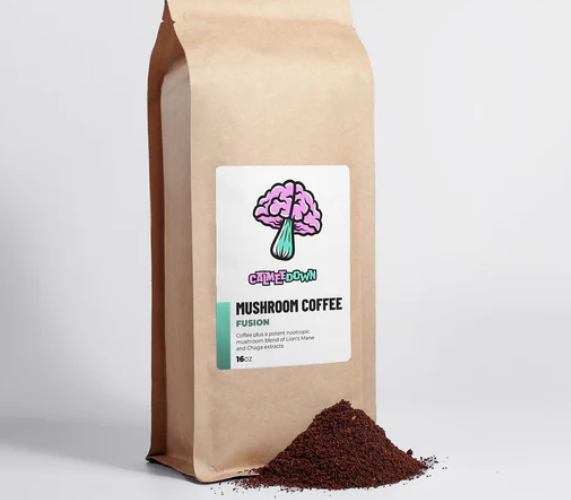You’ve probably heard the saying ‘good things come in small packages,’ and when it comes to mushroom supplements, this rings true. These unassuming fungi offer a range of potential benefits that might surprise you.
From boosting your immune system to enhancing cognitive function, mushroom supplements have been gaining attention for their diverse effects on health. But what else can these tiny powerhouses do for you?
Immune Support
When considering immune support, mushroom supplements have shown promising benefits in scientific studies. Various types of mushrooms, such as reishi, turkey tail, and maitake, contain bioactive compounds like beta-glucans that can help modulate the immune system. These compounds stimulate the activity of immune cells, enhancing the body’s defense mechanisms against pathogens. Additionally, mushrooms possess antioxidant properties that can reduce oxidative stress and inflammation, further supporting immune function.
Research suggests that mushroom supplements may help regulate immune responses, making them beneficial for individuals with autoimmune conditions or those prone to frequent infections. While more studies are needed to fully understand the mechanisms behind mushroom supplements’ immune-boosting effects, current evidence is encouraging.
It’s important to note that while mushroom supplements can be a valuable addition to a well-rounded immune support regimen, they shouldn’t be seen as a standalone solution. A healthy lifestyle, balanced diet, regular exercise, and sufficient sleep remain crucial for maintaining a robust immune system.
Cognitive Function
Mushroom supplements have been associated with potential benefits for cognitive function, particularly in relation to memory and mental clarity. Certain mushrooms, such as lion’s mane and reishi, contain compounds that may support cognitive health. For example, lion’s mane mushrooms have been studied for their potential to stimulate nerve growth factor (NGF) production in the brain, which is essential for the growth and maintenance of neurons related to memory and learning.
Additionally, mushrooms like cordyceps have been linked to improved oxygen utilization, which is crucial for maintaining brain function and mental clarity. By enhancing oxygen delivery to the brain, cordyceps may support cognitive performance, focus, and overall mental acuity.
While more research is needed to fully understand the impact of mushroom supplements on cognitive function, incorporating a variety of mushrooms into your diet or supplement routine may offer potential benefits for supporting memory, mental clarity, and overall brain health.
Energy Boost
Exploring the potential benefits of mushroom supplements further, the focus shifts to their role in providing an energy boost. Certain mushroom species like Cordyceps and Lion’s Mane have been studied for their potential to enhance energy levels naturally. Cordyceps, in particular, is believed to improve ATP production, the molecule responsible for storing and transferring energy within our cells. By supporting ATP production, Cordyceps may help increase overall energy levels, making it a popular choice for those looking to boost physical performance and endurance.
Lion’s Mane, on the other hand, is thought to support energy levels indirectly by enhancing cognitive function. By improving focus, memory, and overall brain health, Lion’s Mane may help individuals feel more alert and mentally energized throughout the day. This cognitive boost can translate into improved productivity and sustained energy levels without the crashes associated with stimulants like caffeine.
While mushroom supplements can contribute to an energy boost, individual responses may vary. It’s essential to consult with a healthcare provider before incorporating new supplements into your routine, especially if you have existing health conditions or are taking medications.
Stress Relief
To understand the potential stress-relieving benefits of mushroom supplements, it’s important to delve into their impact on the body’s response to stress. Certain mushrooms contain adaptogenic properties that may help the body adapt to stressors more effectively. When you experience stress, your body releases cortisol, the primary stress hormone. Reishi mushrooms, for example, have been studied for their potential to lower cortisol levels, which could help mitigate the negative effects of chronic stress on the body.
Additionally, some mushrooms contain compounds that may interact with receptors in the brain involved in regulating mood and stress response. For instance, Lion’s Mane mushroom has been linked to supporting cognitive function and reducing symptoms of anxiety and depression. By incorporating mushroom supplements into your routine, you may provide your body with additional support in managing stress levels.
While more research is needed to fully understand the mechanisms behind these effects, incorporating mushroom supplements into a holistic approach to stress management may offer some benefits for your overall well-being.
Anti-Inflammatory Properties
When considering the potential benefits of mushroom supplements, it’s important to explore their anti-inflammatory properties and their impact on the body’s inflammatory response system. Mushrooms contain bioactive compounds such as polysaccharides, triterpenes, and phenolic compounds that have been shown to exhibit anti-inflammatory effects. These compounds can help modulate the immune response and reduce inflammation by inhibiting pro-inflammatory pathways.
Research suggests that certain mushroom species like Reishi, Chaga, and Cordyceps possess potent anti-inflammatory properties. These mushrooms have been traditionally used in various cultures to combat inflammation and support overall health. By incorporating mushroom supplements into your routine, you may potentially experience a reduction in inflammatory markers and a more balanced immune response.
It is essential to note that while mushroom supplements show promise in managing inflammation, individual responses may vary. Consulting with a healthcare provider before starting any new supplement regimen is recommended, especially if you have underlying health conditions or are taking medications that could interact with these supplements.
Embracing a holistic approach to health that includes a balanced diet, regular exercise, and adequate sleep is crucial for overall well-being.

